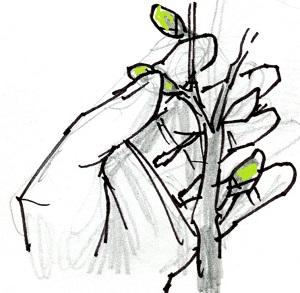
“Consider the fig tree…” (Luke 21:29).
RV 20:1-4, 11—21:2; LK 21:29-33
In today’s gospel, Jesus expressed amazement at his contemporaries for their failure to read the signs of the times.
In simplest terms, he pointed to the weather and the seasons for their obvious indicators of what was happening. A warm wind from the south meant a hot day tomorrow. A cloud on the horizon warned of a possible storm on the lake or coming in from the Mediterranean. Budding trees said that spring was imminent.
The ubiquitous fig tree was a favorite subject of many of Jesus’ parables. In today’s gospel, green buds announce a change in the seasons. In another more dramatic parable, a gardener pleads with the orchard owner to give an unyielding fig tree one more year to produce fruit before it is cut down.
These images and stories were always about larger, more consequential things. Did the crowds, including his own disciples, understand that something new was happening, a new season of God’s grace inviting the world to conversion? See the signs of the times, seize every opportunity to multiply good. Early signs of a coming storm warn us to prepare or even avert disaster, if we take them seriously.
What would Jesus say to us today about climate change, evidence of global imbalance in turbulent weather, rising sea levels? Or the growing volatility of a global economy that enriches the few while the vast majority sinks into hopelessness and resentment? What conflicts based on injustice plead for attention while there is still time to change?
Hope is both a promise and an invitation to act when the alarm is sounded. Be just if we want peace, compassionate if we want compassion. Another person’s suffering is an early warning that crisis will overtake us if we do nothing for our neighbor. Jesus wept over his own generation. Will he weep over us? Not necessarily, not if we have eyes that see and ears that hear, hearts that respond. Consider the fig tree.







